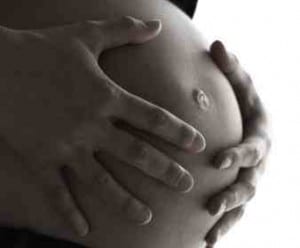 Pregnant and feel like your bowels have developed a mind of their own? According to information from a new study, you’re not alone! In fact, the Loyola University Medical Center researchers found that the majority of pregnant women – 72% – suffer from bowel issues.
Pregnant and feel like your bowels have developed a mind of their own? According to information from a new study, you’re not alone! In fact, the Loyola University Medical Center researchers found that the majority of pregnant women – 72% – suffer from bowel issues.
Presented by senior author Scott Graziano, MD, and Payton Johnson at the 61st Annual Clinic Meeting of the American Congress of Obstetricians and Gynecologists in New Orleans, the study included a total of 170 pregnant women; 104 of them completed a questionnaire during their first trimester and 66 completed one during their third trimester.
Out of the first trimester participants, 72% reported bowel disorders, and 61% of the third trimester respondents reported one or more bowel disorders, including constipation, bloating, diarrhea, and irritable bowel syndrome.
Interestingly enough, when asked to measure the extent to which those bowel problems affect their quality of life (such as the problems making them enjoy life less, limit what they’re eating, make them embarrassed, isolated, depressed or angry), few said it had a significant impact. The only exceptions were constipation, which, out of a 1 to 100 scale (1 being the most impactful), scored 4.4 points and bloating, which scored 4.0 points.
According to Graziano, the reason that bowel problems have so little impact on the quality of life may likely be because pregnant women have learned to expect these issues during pregnancy. As a result, they’re more likely to tolerate them for a short period of time.
And, to a point, women are correct in their expectance of bowel disorders. Physiological changes and hormone changes that occur during pregnancy are the main cause for the presence of bowel disorders during pregnancy, Graziano said. For example, increased progesterone levels affect smooth muscles in the intestines, which causes food to take longer to move through the digestive tract, which, in turn, leads to constipation. Another culprit in the bowel changes is the additional vitamins and supplements that women take during pregnancy, Graziano said.
To help alleviate or, at the very least, minimize some of the common bowel issues, Graziano says that pregnant women should make sure they get plenty of fluids and fiber. In fact, a lack of fiber may also play a part in bowel disorders during pregnancy since most pregnant women consume only 16 to 17 grams of fiber a day when the recommendation is 25 to 30 grams.
Related Articles:
- New IVF Time-Lapse Snapshots may be Making Their Way to Mainstream Medicine
- Baby in Poland Born 23 Times Over Drink Drive Limit
- Experts Come One Step Closer to Understanding the Cause of Congenital Heart Disease






